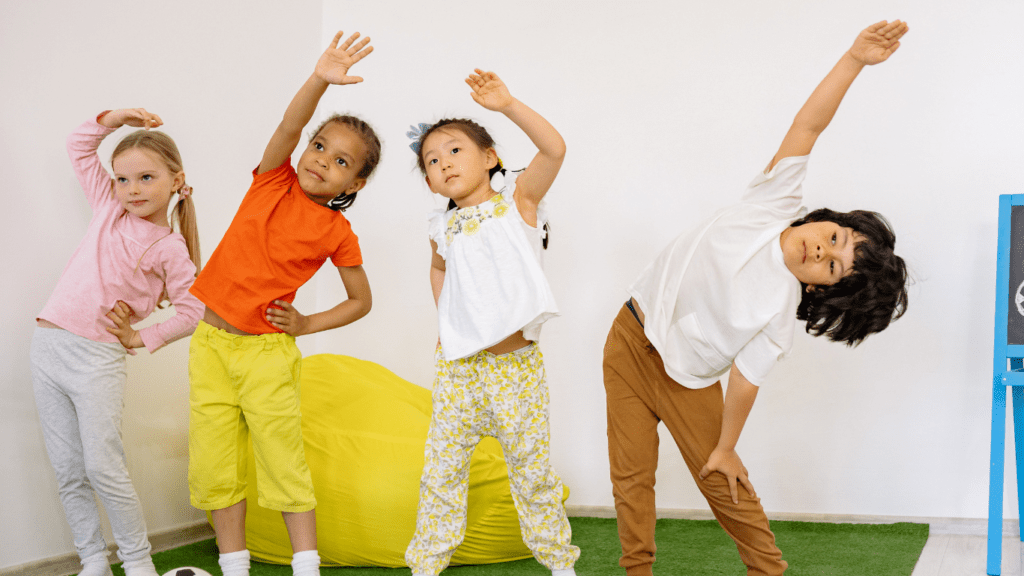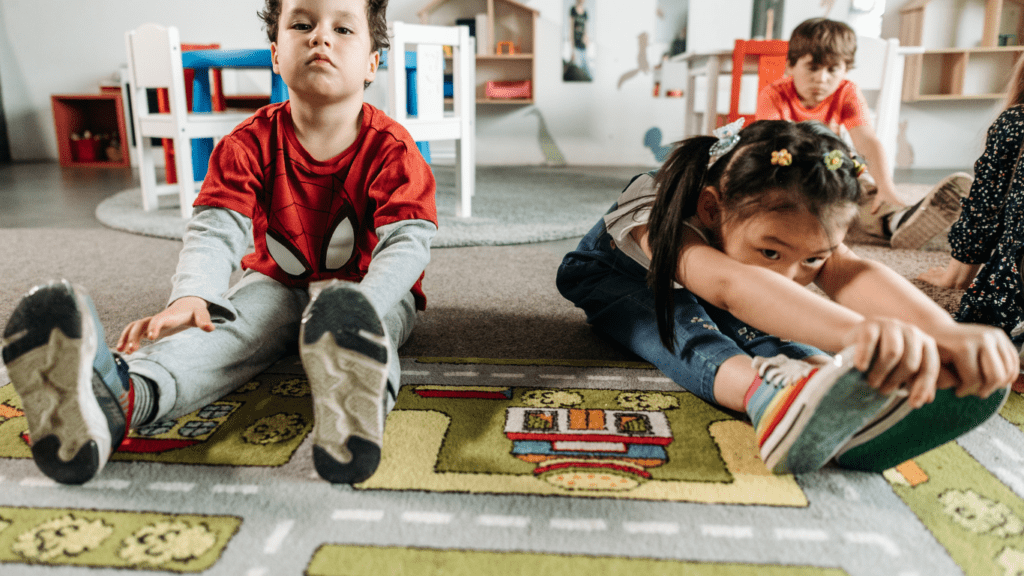The Link Between Physical Activity and Cognitive Development
Physical activity directly influences cognitive development in children. Exercise fosters brain health by promoting the generation of new neural connections.
Exploring the Brain-Body Connection
Activities that involve physical movement, such as running or playing games, stimulate the brain’s plasticity. This adaptability allows children to learn new skills and information more efficiently.
According to Harvard Medical School, physical exercise increases the production of neurotrophins, which are vital for neuron survival, development, and function.
Additionally, motor skills development through physical activity enhances coordination, which in turn supports cognitive functions like planning and problem-solving.
Effects on Concentration and Focus
Physical activity significantly improves concentration and focus in children. Regular exercise increases blood flow to the brain, supplying it with more oxygen and nutrients.
Studies from the CDC indicate that children who engage in daily physical activity perform better in tasks requiring attention and executive function.
For example, children who participate in sports or active play can sustain attention during classroom activities longer and exhibit improved behavior. This enhanced focus directly contributes to better academic performance.
Key Types of Physical Activities for Cognitive Enhancement
Different types of physical activities contribute uniquely to cognitive development. Exploring a variety of these activities can maximize benefits for children’s brains.
Aerobic Activities
Aerobic activities like running, cycling, and swimming significantly boost cognitive functions. They increase the heart rate, which improves blood flow and oxygen delivery to the brain.
Studies show that children engaging in regular aerobic exercises exhibit such as:
- better memory recall
- faster information processing
- higher academic achievement
Including these activities in a child’s daily routine enhances their mental agility and learning capacity.
Team Sports and Group Games
Team sports and group games, such as soccer, basketball, and tag, foster cognitive skills through strategic thinking, communication, and coordination.
These activities require children to make quick decisions, solve problems on the fly, and adapt to changing situations. Research indicates that children involved in team sports experience enhanced executive functions, including planning and self-regulation.
Participating in these social sports develops not only physical prowess but also essential cognitive abilities crucial for academic and personal growth.
Age-Related Benefits of Physical Exercise

Children of different ages derive distinct cognitive benefits from physical activity. Each stage presents unique opportunities for developmental advancements.
Early Childhood Development
In early childhood, physical activities enhance fundamental cognitive abilities. Basic movements like crawling, walking, or jumping improve motor skills and coordination.
These activities stimulate the prefrontal cortex, boosting decision-making and problem-solving abilities. According to the CDC, children aged 3-5 engaged in regular physical activity exhibit enhanced memory and learning skills.
School-Aged Children
For school-aged children, structured physical exercise plays a crucial role in cognitive development. Activities like organized sports and physical education classes improve attention span and executive functions.
Participation in team sports, for example, enhances strategic thinking and social interaction. Harvard Medical School notes that children aged 6-12 who regularly participate in physical exercises show improved academic performance and cognitive flexibility.
Practical Tips for Incorporating Physical Activity
Integrating physical activity into a child’s daily routine enhances cognitive development by improving focus and memory. Here are some strategies to help weave these activities seamlessly into their lives.
Routine Development
Establishing a consistent routine creates structure and makes physical activity a regular part of the day.
- Schedule daily playtime and outdoor activities for at least 60 minutes.
- Include a mix of aerobic exercises, strength-building activities, and flexibility exercises. For example, a morning jog, afternoon relays, or evening stretching can ensure variety and enjoyment.
- Introduce brief physical breaks during study sessions to enhance concentration. Activities like jumping jacks and quick stretches can refresh their minds and improve productivity.
- Use rewards to reinforce the routine until it becomes habitual. For instance, a sticker chart tracking daily activity can motivate younger children.
Engaging and Fun Activities
Engaging children in fun activities ensures they remain enthusiastic about physical exercise. Organize games that require physical exertion, such as tag, hide and seek, and obstacle courses.
Participate in community sports teams to develop teamwork and communication skills. Offer a variety of sports to find what they enjoy most, whether it’s soccer, basketball, or swimming.
Incorporate technology by using dance and fitness video games, which can turn exercise into entertainment. Plan family outings like hiking, biking, or nature walks to make physical activity a bonding experience. For instance, weekend trips to local parks can foster a love for nature and exercise.
Incorporating these practical tips in daily routines ensures children receive the cognitive benefits of physical activity, supporting their overall development.

 Cynthian Holleyori is a skilled article writer who has been integral to the development of Toddler Health Roll. Her deep understanding of child health and development is evident in her well-researched and practical articles, which provide parents with essential guidance on raising healthy toddlers. Cynthian's contributions have significantly shaped the platform, ensuring that it addresses the most pressing concerns of parents and caregivers.
Beyond her expertise in toddler health and nutrition, Cynthian also delves into the mental and emotional well-being of young children. She offers valuable parenting strategies that help families foster a nurturing and supportive environment for their toddlers. Her dedication to building Toddler Health Roll has made it a trusted and comprehensive resource for parents committed to their children's growth and happiness.
Cynthian Holleyori is a skilled article writer who has been integral to the development of Toddler Health Roll. Her deep understanding of child health and development is evident in her well-researched and practical articles, which provide parents with essential guidance on raising healthy toddlers. Cynthian's contributions have significantly shaped the platform, ensuring that it addresses the most pressing concerns of parents and caregivers.
Beyond her expertise in toddler health and nutrition, Cynthian also delves into the mental and emotional well-being of young children. She offers valuable parenting strategies that help families foster a nurturing and supportive environment for their toddlers. Her dedication to building Toddler Health Roll has made it a trusted and comprehensive resource for parents committed to their children's growth and happiness.
